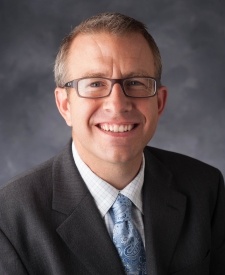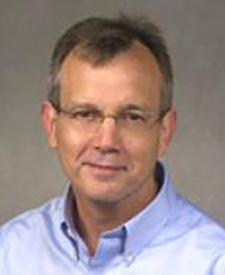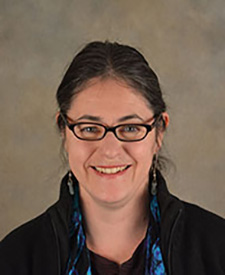For students looking to build a better tomorrow, the University of Iowa has a new answer. In Fall 2022, the UI will begin offering an Interdisciplinary Graduate Program in Sustainable Development. This program will build on course work, community-engaged projects, and professional development experiences that will culminate in a master’s degree.
Students will be trained as next-generation sustainability professionals for career placement opportunities at state and federal agencies, national laboratories, policy think tanks, and in the private sector.

“There’s a growing demand from students on topics like climate change, how to have a lower environmental footprint, or build more sustainably,” says David Cwiertny, the William D. Ashton Professor of Civil and Environmental Engineering. “Many students these days want the work they’re doing in graduate school to help improve society. We’re giving them that opportunity.”
In 2016, the College of Engineering received an NSF Training Grant to integrate sustainability concepts into its graduate education. A major emphasis of this grant was to think about how to institutionalize incorporating sustainability into graduate education at the University of Iowa in the long term. That sparked the idea to establish a new interdisciplinary program.
“We thought it was a great chance to leverage success that GSS (Geographical and Sustainability Sciences) has had in their undergraduate education with the sustainability certificate and their new major, and the outstanding work that Planning and Public Affairs has done for some time with the Iowa Initiative for Sustainable Communities,” Cwiertny says.
To support their development and career placement, students will be jointly mentored by UI faculty Cwiertny and Michelle Scherer from the Department of Civil and Environmental Engineering, David Bennett from the Department of Geographical and Sustainability Sciences, and Lucie Laurian from the School of Planning and Public Affairs.
“Many of the issues that sustainability tries to address are critical issues for society at large,” says Bennett, chair of the Department of Geographical and Sustainability Sciences. “It takes the coupling of the technological and physical sciences skills that came from engineering with the socioeconomic, spatial, and policy skills we have in geography and planning and public affairs. Crossing the spectrum between basic research as well as applied and engaged research is what is exciting about the program and why we need this collaborative team to address these challenges.”

Students will complete 30 hours of coursework (10 classes) to receive an MS in Sustainable Development. Among the 10 classes, four will be core courses: Team-Taught Course in Sustainable Development (team lead: Bennett), Translational Skills for Broader Impact (team lead: Cwiertny), Communication and Stakeholder Engagement (team lead: Scherer), and Capstone Course in Community Engagement (team lead: Travis Kraus).
After completing all coursework, students have the option to participate in a second-year thesis project with local community partners, industry, nonprofit, or public organizations. They will be advised by two faculty members and a professional mentor. Projects can focus on such sustainability issues such as clean water, affordable and clean energy, sustainable cities, or climate action.
Since no one person or agency can solve sustainability challenges in isolation, the program is taking a team-based learning approach based on problem solving.
“Students have been hearing about climate change and resource degradation. They are ready to empower themselves to address those issues,” Cwiertny says. “We’ve learned that in modern graduate education, conducting research and trying to publish papers isn’t necessary aligned with what students are looking for when they finish their bachelor’s degree. They want to get more in-depth experiences and training. They might be looking for experiential learning and skills development. You’ll see a lot of that in this program.”

The Sustainable Development Program will address a growing need in the job market by training a new brand of sustainability professionals to work as watershed management coordinators, sustainability directors for cities across the country, or scientists at government agencies like the USDA or EPA.
“We need to be preparing students to change the way we’re taking care of our communities in Iowa, across the United States and around the globe,” Cwiertny says. “We need to be responsive as educators. Society is coming around slowly to needing these experts, and we’re ready to train them.”
The program expects to admit 5-10 students in the first cohort in fall 2022. Long term, the program could If all goes well, the program should grow in popularity and incoming classes could be around 20-25 students.
“The ideal student for the program is one who has a sense of where they’re going, but don’t know how to get there,” says Laurian, director of the School of Planning and Public Affairs. “They know sustainability, climate, or justice is something they care about. They’re not thinking PhD. They’re planning on being in the world and doing something that matters.”